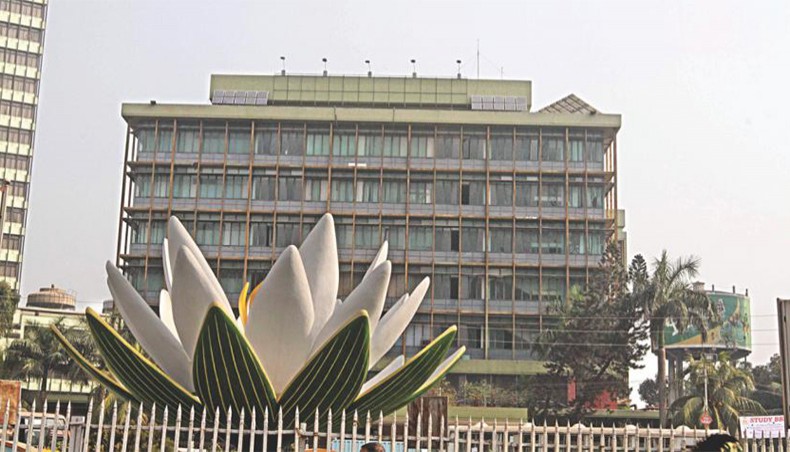Family control over private banks to widen
The cabinet on Monday approved a draft bill seeking amendment to the Bank Companies Act 1991 to allow four from a family to be bank directors which, according to experts, would widen family control on private commercial banks.
The draft bill, financial institutions division placed the draft bill before the weekly cabinet meeting at the Cabinet Division, would also extend the tenure of directors of private commercial banks to three consecutive terms from two.
The move came at a time when there were widespread allegations of loan scams and irregularities against bank directors.
The government took the move to amend the 1991 act reportedly under pressure from bank owners as the existing law allowed only two members of a family to become directors of a private commercial bank and not more than two consecutive terms.
Experts said that such amendments would widen control of a family over the bank leaving depositors’ interests at stake.
They said that the proposed changes were contrary to good governance in the banking sector which already suffered from bad loans and loan scams.
Referring to the draft bill, cabinet secretary Mohammad Shafiul Alam said at a briefing after the cabinet meeting that each director would be allowed to serve three consecutive terms — nine years in a row — instead of the existing six years in two terms.
The amendment would bar no director from being a director of the bank for another nine years after a break, he explained.
Replying to a query, the cabinet secretary said that the Bangladesh Bank had endorsed the proposed amendments to make the board of directors more accountable.
Former Bangladesh Bank deputy governor Ibrahim Khaled told New Age that the proposed amendment to the 1991 act would be highly harmful to the depositors.
‘The proposed amendment will create a family-oriented monopolistic business in the banking sector which will have adverse impacts on the depositors’ interest,’ he said, adding that only 10 per cent working capital of a scheduled bank was usually provided by its shareholders.
Speaking on the draft bill, prime minister Sheikh Hasina told the cabinet that the government took the move so that the founding sponsors were not replaced by the new directors, said a minister.
The amendments would make the board more accountable since the founding directors were supposed to be more responsible, the minister quoted Hasina as saying.
In 2013, the government amended the act restricting to maximum two the number of directors from a family on the board to check irregularities and indiscipline, said officials.
In October 2016, Bangladesh Association of Banks, an organisation of the private bank owners, demanded the amendments to the act at a meeting with finance minister AMA Muhith.
Association leaders led by its chairman Nazrul Islam Mazumder at the meeting had claimed that directors coming from family would be deprived of their right to wealth if the existing six-year tenure continued.
A vested interest would be created in the banking sector if the directors were allowed to hold the office for three terms or nine years in a row, Ibrahim Khaled said.
Every country empowers its central bank to control the banks, but the proposed amendment would undermine the Bangladesh Bank’s authority to regulate the banking sector, said the former deputy governor.
Echoing him, former interim government adviser AB Mirza Azizul Islam said that the proposed amendment was undesirable.
He said that it would put a negative impact on the corporate governance in the banking sector.
According to a central bank report, directors borrowed Tk 88,790.03 crore from each other’s banks until September 30, 2016 through mutual understanding.
Financial scam might increase further if the draft bill was passed, Mirza Aziz expressed fear.
A Bangladesh Bank official told New Age that the directors of the banks were mainly responsible for the recent scams and scandals in the banking sector.
Central bank records showed that 13.96 per cent of Tk 6,35,986.89 crore lent by 56 scheduled banks was disbursed to bank directors.
The loans were pocketed by 50-70 directors of 46 scheduled banks, the central bank official said.
A central bank inspection report showed that Mercantile Bank chairman Shahidul Ahsan and NRB Commercial Bank colluded in huge irregularities like loan scam and illegal shareholding in ‘fake names.’
NRB Commercial Bank led Tk 301 crore to Ahsan violating the rules and regulations.
It violated the single borrower exposure limit to sanction the loans in favour of Ahsan’s business organisations as it approved 56 per cent credit limit amounting to Tk 301 crore against its capital of Tk 540 crore.
The report said that Ahsan also ‘illegally gripped’ NRB Commercial Bank’s shares of its two sponsor directors — Kamrun Nahar Sakhi and ABM Abdul Mannan. The two directors hold shares of the bank worth Tk 43.71 crore.
Another inspection report of the central bank earlier found gross violation of banking rules in sanctioning and disbursing loans and hiding defaulted loans amounting to about Tk 400 crore by Farmers Bank.
The probes found that the bank’s audit committee chairman Md Mahabubul Haque Chisty, its former managing director Choudhury Moshtaq Ahmed, additional managing director AKM Shameem and six other officials were directly responsible for the anomalies.
The central bank data showed that defaulted loans in the banking sector increased by Tk 10,800 crore to Tk 62,172 crore in the last calendar year due to the financial scams.
- See more at: http://www.newagebd.net/article/15209/family-control-over-private-banks-to-widen#sthash.oAxU0360.dpuf











